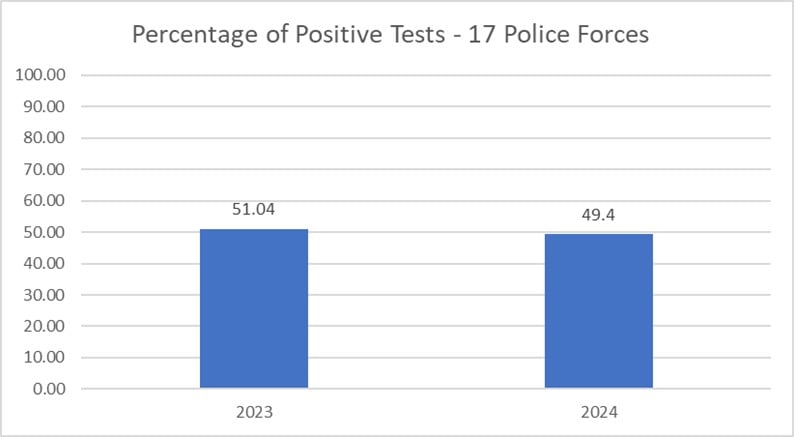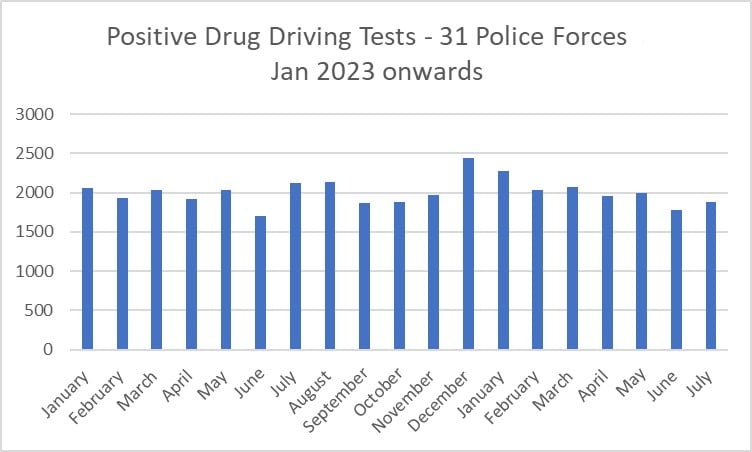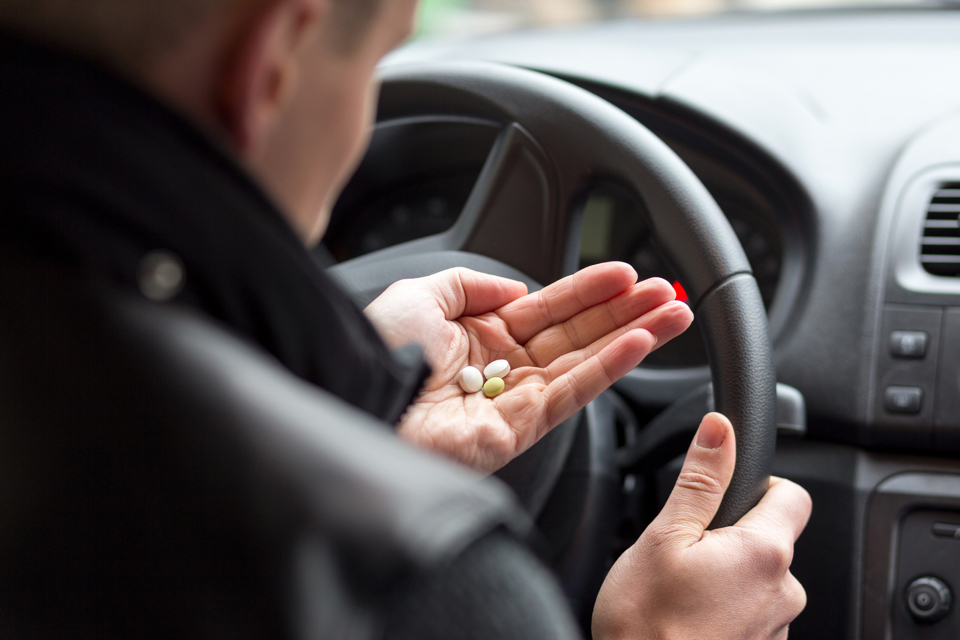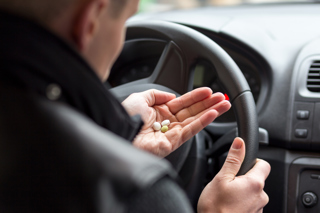More than half of motorists pulled over by the police on suspicion of drug driving fail roadside testing, according to new analysis by IAM RoadSmart.
The UK road safety charity submitted a Freedom of Information (FOI) to all 45 police forces in the UK, with 31 forces providing data, including the Metropolitan Police.
According to the FOI more than half (51%) of drivers tested positive during roadside testing in 2023, while in 2024, 49% of drivers tested positive in the first seven months of the year.
This is based on failure rate data provided by 17 of the 31 police forces that responded to the FOI request.
This is in addition to Department for Transport (DfT) figures that show the number of deceased drivers with ‘impairment drugs’ present has increased by over 70% from 2014 to 2022.
Further figures revealed in the House of Lords last week showed that drug-driving deaths are at their highest level for five years.
Between 2022 and 2023, drivers killed under the influence of drugs jumped from 96 to 144.

The prime times of the year for catching offenders are during the party season: summer festivals and at Christmas.
This coincides with Operation Limit, a national policing operation that takes place every year during various festivities to reduce drink and drug driving.
Police Scotland recorded the most failed tests in December 2023 and January 2024 with a total of 526 offenders, followed by Greater Manchester Police with 397 and Surrey Police with 368.
While police do not need a reason to stop a vehicle, they must have a reasonable suspicion that the motorist is under the influence of drugs before asking them to submit to a drug test.
A roadside swab test, which identifies whether motorists have taken cannabis or cocaine on the spot, was introduced in 2015, however some forces only started recording data in 2023. IAM RoadSmart said this means the actual number of drivers with drugs detected is likely to be much higher.
Driving after taking illegal drugs is against the law, and driving after taking legal drugs is also breaking the law if it impairs driving.
Impairment drug categories
‘Impairment drugs’ fall into three categories: psychoactive medications such as benzodiazepines; psychoactive drugs that could be prescribed, abused or used in emergency medical treatment such as morphine, alfentanil, fentanyl, ketamine; and drugs that are prone to abuse, such as cocaine and LSD, which have no medical use according to The Misuse of Drugs Regulations 2001.
A conviction for drug driving can lead to a minimum one-year driving ban, an unlimited fine, up to six months in prison, and a criminal record. The conviction stays on a driving licence for 11 years.
Convicted motorists are also likely to see their insurance costs increase significantly, and may have trouble travelling to countries like the USA.
IAM RoadSmart Policy Manager William Porter said: “The fact that one in two motorists are failing roadside drugs tests shows that the message about the dangers of drug-driving is not getting through.
“Separate research by IAM RoadSmart indicates that one in seven (16%) drivers aged 17-34 admitted to getting behind the wheel after taking class A drugs, indicating how vital it is to tackle this growing epidemic.
“We urgently need a new approach to combat drug-driving which focuses on both greater enforcement and establishing rehabilitation courses to reduce reoffending.
“The evidence shows that those taking equivalent drink-drive courses are almost three times less likely to reoffend than those who don’t.
“Ministers must consider expanding similar courses to those with drug-driving convictions.”
Fleet decision-makers were issued with new drink and drug-driving guidance in November last year by the Association of Fleet Professionals (AFP).
Written by the AFP’s Risk, Compliance and Health Committee, the AFP guidance covers the need for a drug and drink driving policy, what its contents should include, rules for grey fleet drivers, and the importance of recognising that prescription and over the counter drugs, as well as illegal ones, can be an issue behind the wheel.
























Login to comment
Comments
No comments have been made yet.